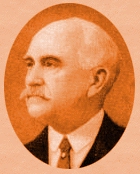
Judson Harmon was a Cincinnati lawyer and former United States Attorney General (1895-97 in the Grover Cleveland Administration) when Sheriff Joseph Shipp asked him to represent him in his criminal contempt trial. Harmon first challenged the Supreme Court's jurisdiction to try Shipp. He argued that the Johnson case did not involve "a real question of constitutional rights" and therefore the Court's stay of execution was improper and his client could not be tried for contempt. Harmon told the justices that the juror's "tear his heart out" remark was harmless error and, besides, the defense did not make a timely objection. "If an order be made without jurisdiction," Harmon concluded, "there can be no punishment for contempt." Harmon also contended that Johnson, having failed to raise federal constitutional issues in the state courts, ought to be precluded from raising those issues later in a federal court. The Supreme Court rejected Harmon's arguments and found that it had jurisdiction to proceed with the trial.
Harmon, along with Lewis Shepherd and Robert Pritchard, developed the legal strategies that guided the defense in the evidentiary phase of the trial in Chattanooga. On March 3, 1908 in the Supreme Court, Harmon presented a two-hour closing argument for Shipp. He told the justices that "the testimony shows that Sheriff Shipp did not conspire, aid, or abet the lynchers and did not fail to take proper precautions to guard [Johnson]." He conceded that "it is possible that Captain Shipp acted with poor judgment" and "should have had the jail guarded," but that his failure in these respects was no crime. Shipp, he said, was a "truthful, law-abiding, honorable gentleman." The Court again disagreed.
In the fall of 1908, Harmon was elected Governor of Ohio. He was re-elected in 1910, defeating Warren G. Harding.
